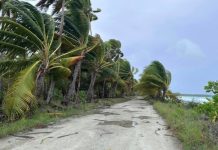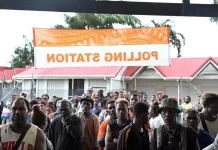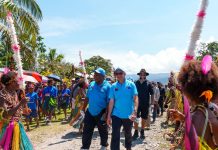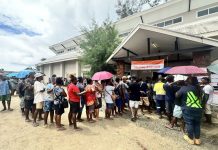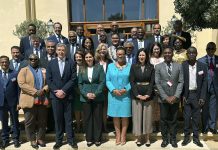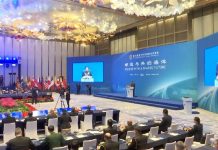Survey of more than 6,000 people by Transparency International is the most comprehensive look at corruption in the Pacific region to date
One in three people across the Pacific Islands region have paid a bribe when using a public service in the last year, while a quarter of people have been offered a bribe for their vote in the last five years, according to a report by Transparency International.
The findings for the watchdog group are based on a survey of more than 6,000 people in 10 countries and territories, and is the most comprehensive look at corruption ever carried out in the region.
Kiribati, Papua New Guinea, and the Federates States of Micronesia (FSM) top the list for both percentage of people who have paid a bribe and percentage of people who have been offered a bribe for their vote. The report notes that 15% of people surveyed said they had also received threats of retaliation if they did not vote a specific way.
“What we can now see is that bribery is worse in the Pacific region than any other region in the world,” said Mariam Mathew, Pacific regional lead at Transparency International. “It’s certainly very alarming.”
The most common public services people paid bribes for were health care and education. Others include government offices issuing documents, providers of water, sanitation or electric services, the police and the courts.
The report also notes that over 40% of respondents believe sexual extortion happens at least occasionally, with 38% across the region stating they or someone they know has experienced sexual extortion – the act of demanding sexual favours in exchange for official services – in the last five years.
While New Caledonia and French Polynesia, both oversea French territories, fared better on whether people had paid a bribe or received a bribe for their vote, they ranked worst on other issues, particularly sexual extortion.
The highest rate of sexual extortion was reported in French Polynesia, where 92% of respondents said they have experienced this form of corruption themselves or know someone who has, followed by New Caledonia (76%) and Papua New Guinea (51%).
French Polynesia also ranked worst on nepotism, with 84% of respondents believing that public servants commonly influence a hiring decision in their departments to favour a friend or family member. More than half of those surveyed in New Caledonia said they had used personal connections in the public service in the previous 12 months.
Dr Henry Ivarature, a corruption expert from PNG and a Pacific lecturer at the Australian National University, said the report’s findings are not surprising.
“Petty corruption like paying for public officials for services is very common, if you want to escape a fine or get say passport, police clearance or land titles processed quickly,” he said.
In Solomon Islands and Papua New Guinea, 97% and 96% respectively believe that corruption in the government is a big problem.
The report notes that people view businesses as a major part of the problem, with government contracts considered a hotspot for corruption. Almost half of those surveyed believe there is little control over companies involved in extracting natural resources, many of which are foreign owned.
“We have seen many allegations of opaque deals being made. A lot of these companies are foreign mining companies and so we asked the question in the survey of whether businesses have influence over government decision making and the response was quite high,” said Mathew.
“The Solomon Islands was a reoccurring worst performer on a number of those business-related questions, such as obtaining government contracts where over 90% of respondents said businesses at least occasionally rely on connections or offering money to obtain these contracts.”
The Pacific is one of the most under-studied regions in the world on corruption, Mathew said this report offers an opportunity to improve anti-corruption safeguards, adding that people’s attitudes reflect a willingness to do this.
“People believe that governments are doing a good job in handling corruption, which initially could seem strange,” she said. “But then when you look closely, it could be that governments have actually started to make reform. There’s a lot of potential to build on this positive momentum.”
In 2020, the president of Kiribati, the prime ministers of Samoa and the Cook Islands and ministers and anti-corruption officials from other Pacific nations attended the first Pacific Regional Anti-Corruption Conference, held in Kiribati, where they agreed on a vision to tackle corruption.
SOURCE: THE GUARDIAN


